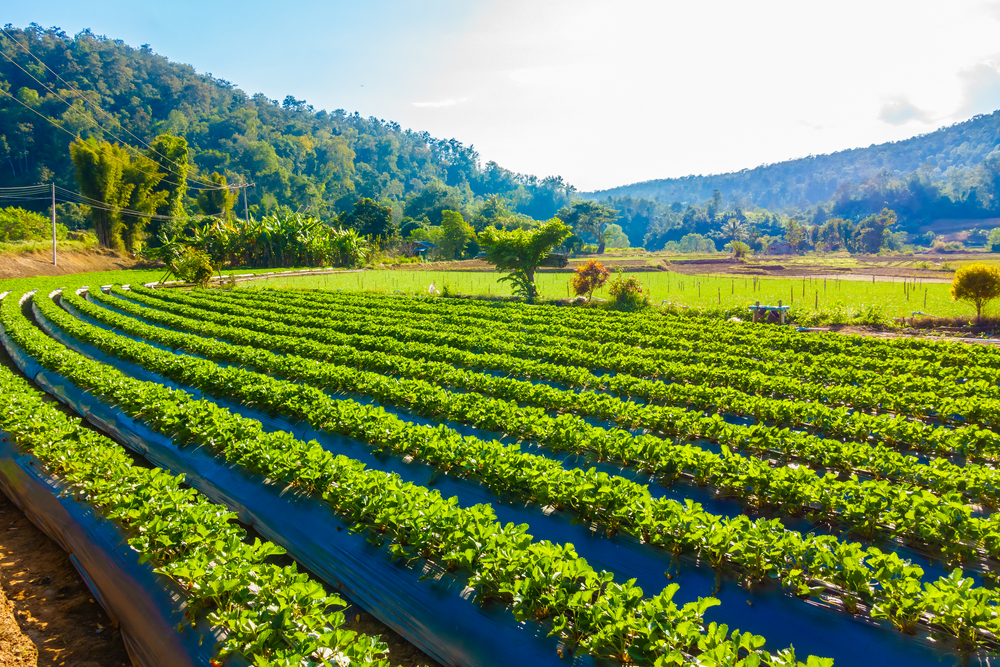The Importance of Organic Farming
In today's world, where environmental concerns are becoming increasingly important, organic farming stands out as a key solution. It focuses on sustainable practices that prioritize soil health, biodiversity, and the well-being of both consumers and farmers. Let's explore the importance of organic farming and why it is essential for a better future.
Organic farming is more than just a trend; it’s a way of life that benefits our health, the environment, and future generations. In this blog, we’ll explore why organic farming is important, its uses, and why it’s relevant in today’s world. Let’s look in!
SV Agro Solutions Pvt. Ltd. is an agriculture company in Pune that has been leading agricultural innovation since its establishment in 2016. Dedicated to enhancing crop production, the company specializes in providing the best agro products and organic inputs. With a strong focus on research and development, SV Agro Solutions delivers high-quality organic agricultural products in Pune designed to boost farming productivity sustainably. Their products are created to support farmers in achieving better yields while promoting eco-friendly farming practices. Trust SV Agro Solutions for all your agricultural needs, offering solutions that enhance both quality and quantity.
What is Organic Farming?
Organic farming is a method of growing crops and raising livestock without using synthetic chemicals like pesticides, fertilizers, or genetically modified organisms (GMOs). Instead, it relies on natural processes, composting, crop rotation, and eco-friendly practices to maintain soil health and produce nutritious food.
Why is Organic Farming Important?
Healthier Food
Organic farming produces food free from harmful chemicals, pesticides, and synthetic additives. This means cleaner, safer, and more nutritious food for you and your family.
Protects the Environment
By avoiding synthetic chemicals, organic farming reduces soil, water, and air pollution. It also promotes biodiversity by creating a balanced ecosystem for plants, animals, and insects.
Improves Soil Health
Organic farming relies on natural fertilizers like compost and manure, which enrich the soil with essential nutrients. Healthy soil means better crops and a sustainable future for farming.
Saves Water
Organic farming practices, such as mulching and crop rotation, help retain soil moisture. This reduces the need for excessive irrigation and conserves water.
Supports Farmers
Organic farming encourages fair trade practices and provides farmers with better income opportunities. It also reduces their exposure to harmful chemicals.
Fights Climate Change
Organic farming reduces greenhouse gas emissions by avoiding synthetic fertilizers and promoting carbon sequestration in the soil.
The Need for Organic Farming
With the growing population and increasing demand for food, conventional farming methods have led to soil degradation, water pollution, and health issues. Organic farming offers a sustainable solution by:
Preserving natural resources.
Reducing the carbon footprint.
Ensuring food security for future generations.
Uses of Organic Farming
Food Production
Organic farming produces fruits, vegetables, grains, and dairy products that are free from harmful chemicals.
Medicinal Plants
Many medicinal herbs are grown organically to ensure their purity and effectiveness.
Sustainable Livestock Farming
Organic farming includes raising animals without antibiotics or growth hormones, ensuring healthier meat and dairy products.
Eco-Friendly Textiles
Organic cotton and other natural fibers are grown without pesticides, making them safer for the environment and consumers.
Relevance of Organic Farming in Today’s World
In a world facing climate change, health crises, and environmental degradation, organic farming is more relevant than ever. It addresses critical issues like:
Food safety and nutrition.
Environmental conservation.
Sustainable agriculture.
Significance of Organic Farming
Promotes healthier lifestyles.
Protects ecosystems and wildlife.
Reduces dependency on non-renewable resources.
Encourages sustainable living.
Builds a greener, cleaner planet.
Why Organic Farming is Important for Future Generations
As the global population continues to rise, the demand for food will also increase. Organic farming plays a crucial role in addressing the challenges of food security. By focusing on sustainable and environmentally friendly practices, we can ensure that future generations inherit a healthy, thriving planet.
Conclusion
Organic farming is not just a choice; it’s a responsibility we owe to ourselves and the planet. By choosing organic, we support healthier lives, a cleaner environment, and a sustainable future. Let’s embrace organic farming and take a step toward a better tomorrow.
Start small—choose organic products, support local farmers, or even grow your organic garden. Every step counts in making the world a healthier place.
